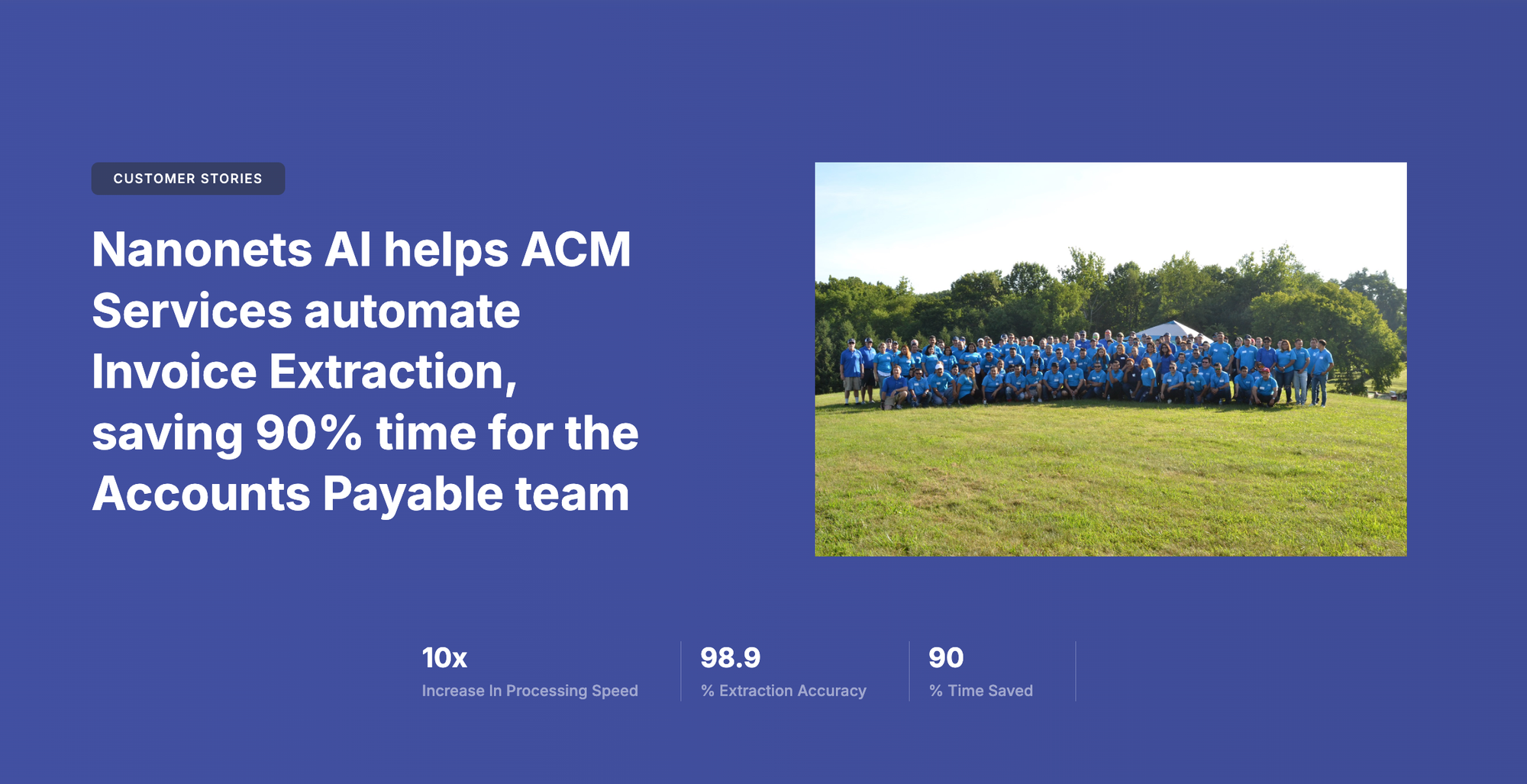
Robotic process automation is a must for the business process outsourcing industry, which faces a constant demand to enhance cost efficiency while performing mundane and repetitive tasks. RPA can help BPO organizations improve productivity while maintaining lower costs by automating repetitive manual tasks. Thus, it frees up employees' time to perform other functions with better ROI.
An employee spends around 4 hours 38 minutes per week completing repetitive manual tasks. If compiled over a year, it amounts to 219 hours! With RPA, it is possible to automate these tasks so the employees can spend more time on high-ROI tasks.
RPA has already played a massive role in automating digital tasks in multiple industries like insurance, manufacturing, legal, financial services, etc. However, there is still much confusion regarding RPA in BPO and its impact on modern-day industries.
And that is precisely what we will talk about today, the effects of RPA in the BPO industry, the benefits, and challenges, and how to select the best RPA software for your BPO organization. So, without any further ado, let us dive right in.
What is Business Process Outsourcing?
Before diving further, we must look at what business process outsourcing is. The number of business operations is multiplying, so managing all the minor aspects of the workload can become daunting.
BPO or business process outsourcing is a business method where third-party vendors take responsibility for any part of a business operation. This method is also popularly known as subcontracting. Here, the third party will be employed and have a contract that provides the responsibility to carry out one or more business operations.
BPO usually is done to get help in two aspects of your operation.
First is the back-office operations, where a third party handles various forms of IT services, payment processing, and more. Secondly comes the front office operation BPO, where third-party vendors take care of customer relations, sales, and marketing.
BPO offers significant benefits in lowering costs and increasing efficiency in both aspects. BPO also allows companies to expand at a higher speed.
Looking for RPA software? Nanonets is a no-code, workflow-based & easy to uses RPA software.
What are the types of BPO?
According to research, large organizations are 66% more likely to outsource their business process due to their overwhelming work. However, as the needs of companies are different, Business process outsourcing also comes in different shapes and sizes.
According to the location and functions of the service provided, here are the top 5 types of BPO that you should know about.
Back office BPO
Back Office BPO usually deals with services that do not involve facing the customer at any given point of the service. As a result, back-office business process outsourcing usually includes services like Accounting, HR, Quality assurance, IT, and much more.
Front Office BPO
Front process BPO, on the other hand, is responsible for all the work related to customer-facing. This can also include tech support, help with queries, marketing, Sales, etc. These business processes are usually done off-premise by other outsourcing companies.
Domestic BPO
Domestic BPO, popularly known as onshore BPO, is done within the country. It might be within the same city or state. The service location depends on the availability of the skill set, different rates, and the cost of service in another region. As long as it is another company handling your business process, it is considered a domestic BPO.
Nearshore BPO
Nearshore BPO is the act of outsourcing your business process to any vendor from nearby countries. The main reason for sharing the workload with a geographically closer vendor is communication. Therefore, the nearer the vendor company is to your country, the better your chance of having good communication.
Moreover, the prices and service costs will be something you can easily resonate with. For instance, if the company is based in the USA and if they outsource some business process to a vendor in Canada, it will be considered a Nearshore BPO.
Offshore BPO
As the name already suggests, offshore BPO occurs when the services are outsourced overseas. The vendor’s placements can depend on various factors, including lower service costs, Savings on Taxes, Politics, and much more.
A prevalent Offshore BPO example is the call center vendors around the world. They usually reduce overhead costs and provide the business with an affordable solution.
What is RPA in BPO?
Robotic Process Automation (RPA) is revolutionizing Business Process Outsourcing (BPO) by introducing efficiency and precision.
The main goal of all business processes outsourcing is achieving the highest level of productivity, cost reduction, and sometimes a combination of both. Over 3.5 million professionals are working in today’s IT-BPO industry. That being said, there were still some obstacles that the BPO industry faced in managing the workforce. And that is precisely where RPA in BPO comes into play.
RPA, or robotic process automation, is a state-of-the-art software technology that automates routine tasks using AI bots or workflows. These bots learn and mimic any rule-based actions and execute them flawlessly.
As mentioned earlier, employees spend over 20% of their work time on repetitive tasks. This case is especially true for IT departments. Companies usually try to outsource these invoice processing, claims processing, data extraction, data entry, or other repetitive tasks to multiple vendors. And this is precisely where RPA in BPO comes into play. RPA in BPO solves the biggest challenge of BPO, which is a fast solution at an affordable cost.
More and more companies are going through a digital transformation that involves automation. And that is why RPA is BPO seems to be the only way forward for most digital companies.
What are the benefits of using RPA in BPO?
RPA is BPO is becoming the new norm in pretty much every industry. This overwhelming popularity is due to the massive number of benefits they bring to the table. Here are some of the top benefits of using RPA in BPO.
Improvement in the output efficiency
If there is any part of the business process where the robotic process automation shines its brightest, it would be saving time and cost. Of course, using RPA in BPO significantly increases the productivity and accuracy of the work. But the amount of savings it does in terms of money and time is truly unbelievable.
The ROI on RPA can be anywhere from 30 to a massive 200% percent. [Source: McKinsey]
And this is only for the first year alone. As time goes by, the investment in the RPA program will grow smaller, whereas the return on investment continually grows.
Once an RPA program in BPO is completely set up and running, the maintenance cost can be minimal. This can save both time and money compared to training and hiring new employees.
Improvement in the work quality
The main focus of BPO RPA is in the department of speed and cost. That being said, another significant benefit of using RPA in BPO is the sheer quality of work.
RPA uses automated workflows to process, calculate and develop reports while providing an almost error-free performance. On the other hand, no matter how much you train your employees, humans will eventually make some errors in the work.
As long as you offer your bot an established guideline, you will enjoy no deviation from it through RPA. And inconsistency in work can be the difference between a frustrated client and a delighted one.
Bots are mainly designed to handle data through predefined rules. Using RPA in BPO offers a consistent workflow regardless of the day and time. That means there will be no forgetting work due to workload, and companies can enjoy improved work quality.
Another significant aspect of using RPA is the reliability of the product. Sometimes the data in hand might have flaws that any human can not easily manage. On the other hand, bots can check the data and match it with its instructed outline. If anything about the data is out of play, the RPA system can flag it and reject the data.
Scalability and Flexibility
The final benefit of using RPA in BPO is scalability and flexibility. Hiring more workforce can take up a lot of time and resources. However, working with RPA, one can scale as much as one wants without a barrier to stop them.
Companies can also take on significant new projects without worrying about the human workforce. The scale on-demand feature ensures great flexibility for any business and allows them to take on big projects to increase ROI.
In short, although Cost saving is the primary target for RPA implementation, the benefits go beyond the scope of only that. This includes both improvement in service delivery and the improvement in better manageability of the business process.
The service delivery improvement is ensured by the reduction in error and the increased completion speed. On the other hand, Improved security, the ability to embed instruction into the bots, and the business community scope allow the organization to manage the business better.
What are the challenges of business process outsourcing?
Even though business process outsourcing comes with various benefits, it has its own challenges. Here are some of the biggest challenges that the BPO industry faces.
Political change
A change in the political party or situation can significantly harm the business process outsourcing industry. A significant shift in the political paradigm, especially in Europe or America, can drastically affect the global BPO industry. And having to keep up with these, along with all the workload, can sometimes be very frustrating.
For instance, any form of falling economy can somewhat force the country's government to pass any bill that hampers the flow of outsourcing to a different country.
Customer expectation
One of the biggest challenges of the BPO industry has always been with customers. Providing your customers with a satisfaction level that beats their expectation is always the primary goal. But due to so much increased competition and media, customer expectations keep getting higher. And this causes a big challenge that the BPO industry has to face each year.
Budget issues
Another big challenge in the BPO industry is the budget. Most outsourcing companies try to complete the work with the best quality while also spending as low as possible. But this can be somewhat contradictory in most cases.
Getting the best result at a minimal cost is always a big issue. And given the work structure and the expectation from the BPO industry, it always poses a big challenge.
Talent Scarcity
Another big challenge of business process outsourcing is the rarity of talents. So to hand over your project, a business has to determine and find out the right skills for the job. And with such a scarcity of talents compared to the number of work requirements BPO industry can create a significant challenge.
Disruption frequency
Most of the BPO is done offshore. That is why keeping a certain level of communication at any given time requires a consistent internet connection, power solution, and much more.
Due to so many poor internet situations, and power shutdowns in different regions, this can pose a severe threat to the BPO workflow. Only 47% of people get high-speed internet access in rural areas.
What are the challenges of implementing RPA in the BPO industry?
Resistance from the IT team
The fear of robots stealing our jobs is one of the biggest reasons most organizations face resistance from employees to implement RPA. This lack of willingness to welcome the latest end technology eventually stops many companies from Establishing RPA in BPO.
Another big reason behind this resistance is the change needed while implementing. Implementation of RPA will require Changes in IT arcature which can compromise data security if not handled correctly. And this alone poses a serious challenge for RPA.
Hidden cost
Even though RPA saves a lot of resources and money in the long run, the initial cost of implementation can be massive. And after taking on this challenge comes the hidden costs.
Even after the upfront cash, there will be cost along the line of software customization, configuration, and maintenance. So in order to take on this challenge, you must assess all of these costs before creating the business case for RPA.
Visibility issue
A big con of using RPA is not having the ability to see which robot is responsible for which tasks. Even though it should be an issue, as long as the system works flawlessly, managing and monitoring can sometimes be difficult.
Without setting up an efficiency control tower to properly control and manage each bot along with his assigned task, you will never be able to unlock the system’s maximum potential.
Not setting up the right expectation
The final challenge of implementing RPA in the BPO industry is not having an effective expectation plan in place. You have to remember that RPA is nothing but a system to cut down your BPO cost and save you resources. But if that is all you depend on to elevate your business, you are prone to fail.
In short, RPA should be a part of a bigger Tech strategy that involves scalability, flexibility, and innovation.
What are the different use cases for RPA in BPO?
In 2022 alone, the global revenue of RPA software is projected to go beyond 2 Billion USD. This is also expected to reach almost 13.78 Billion USD in 2028. From this stat alone, we can estimate the popularity of RPA in the BPO industry. Here are some of the use cases where RPA effectively elevates BPO for companies globally.
Customer service
The most significant use case of RPA in BPO is in the customer service industry. Most modern-day customers like to get their queries answered as soon as possible.
RPA can expedite customer resolution by using a rule-based process to get more information about customer queries, offering DIY solutions, or connecting to the next available customer agent after gathering the required information.
RPA BPO bots can send out the initial response to their queries for a hassle-free experience. Over 70 to 80% of rule-based processes in customer services can be automated using RPA.
Invoice processing
Invoice processing is another repetitive business process that can cause incorrect payments and time delays if done manually. And RPA streamlines this process by offering timely payment handling.
Invoice processing is challenging as different companies have different invoice formats. But, using software like Nanonets, which can be trained, invoice processing can be simplified and customized according to requirements.
Nanonets can be used to create custom AI models to extract data from PDFs, paper invoices, handwritten notes, or any kind of document.
Nanonets Customer Limelight :

Read more about how Nanonets helped ACM services.
Price comparison
One of the most popular use cases of BPO RPA is in price comparison. When businesses purchase anything in bulk for their manufacturing needs, the cost is crucial. The cost of these items can make or break the business and impact the ROI significantly.
However, manually taking the time to compare and research the available option can be tricky and cost a lot in the long run. Keeping that in mind, many businesses are not using RPA to handle the price comparison process.
This system can compare various vendors' quality, reliability, and price and give you the best result.
Data Entry & Validation
In today’s world, Data can come in various shapes and sizes. From machine-readable data to handwritten notes, there are limitless types that data experts face.
As a result, the overall process of reading, entry, and validation can be a big struggle for data entry professionals. RPA allows the business to free up data entry and validation tasks and automates the process with outstanding accuracy.
Compliance Management
Companies all over the world are facing new regulatory document work every single week to bring compliance under control. This takes up a lot of resources from the company’s administrative body. But with robotic process automation, Compliance management feels like a breeze.
With the power of automation, businesses are now able to streamline compliance management and limit the exposure to risk in the long run. And as organizations evolve, managing more standard compliance with rule-based inputs will not get more complex due to the scalability of the RPA system.
Reconciliation
Reconciliation involves finding out and sorting information related to the expenditure along with balance. Manual doing this can take up a lot of time from the Accounts departments, which can be better utilized elsewhere.
RPA enables the organization to streamline this process and automate the matching and sorting of all payment details for an efficient record reconciliation experience.
How is RPA changing the face of the BPO industry?
The BPO industry is already a dominant force in pretty much every business model due to the overwhelming number of benefits it brings to the table. But with RPA in the mix, the outsourcing solution for businesses is becoming more advantageous than we could have ever imagined.
From saving up on cost and time to making a digital transformation shift with highly accurate work automation, RPA offers everything an organization might need. Due to these rapid, cost-effective, and precise work structures, most global companies now include RPA in their growth strategy and enhance themselves through RPA technology.
RPA offers some significant cost-effective benefits. However, considering the massive move toward digitization, business owners are looking for every way to cut down costs while also increasing output. And this is where RPA offers them a great opportunity.
- RPA enables businesses to cut down hiring costs by three times less.
- As RPA can offer work done 24/7, this significantly increases the output and productivity of the BPO industry.
- As there is no human involved in the RPA process, the business processes are done with little to no error.
- Due to the higher level of compliance, the RPA ensures that the processes are done according to the set standard. This, as a result, improves the output quality of the BPO.
What is the future of RPA in BPO?
Most large and successful organizations have already adopted RPA in their business process. That being said, RPA still holds untapped potential that can drastically change BPO in the future.
As robotic process automation is getting smarter each day through the latest technologies, the benefits it is coming with is also improving. Therefore, the main focus of emerging RPA research is on improving the digital experience for the customer and improving productivity.
With so much competition in almost every industry, businesses struggle to keep up with higher client expectations. And the latest research on improving digital customer experience can answer this challenge for companies in the future.
The next step of RPA is to blend in with artificial intelligence and other machine learning schemes. By combining process automation and AI, this intelligent automation will allow businesses to automate other complex tasks.
Even though we automate all the mundane business processes through RPA, complex tasks are still being outsourced to humans. This still is prone to errors with inefficacy for cost and time. But with AI in the mix, we will be able to automate other less rule-based processes that might not need actual human intelligence to complete.
How to select the best RPA software for BPO?
With such overwhelming popularity of RPA software, especially in the BPO industry, there are plenty of software solutions. And finding the right one that offers you the best ROI can be tricky.
Keeping that in mind, we have come to you with a complete guide on how to select the best RPA software for BPO. So let us check it out.
Implementation ease
One of the first things you should consider when selecting the best RPA software is its ease of implementation. You don’t want to spend time on an RPA solution that can take a massive implementation time and cost. Instead, try taking time first to figure out whether they can be set up and running smoothly in a minimum amount of time.
Process creation
To work with BPO RPA, you need to develop automation scenarios. So, look for a user-friendly environment that enables you to create the automation process easily.
A big thing to consider before opting for an RPA solution is to find out how much time it will take to create automation process scenarios. The process creation timeline should be in line with your project deadline in order to establish a fruitful automation system.
Operation ease
The operation should be another selection factor for the best RPA software for your need. Find out a solution that can be easily adjusted and resonate with the changes and expectations of the operation.
For instance, you need to think about does the RPA solution in had has the ability to scale as your business does. You also need to pay a lot of attention when it comes to RPA flexibility.
Your organization’s needs and expectations can change anytime. And the RPA software solution must be able to address this change and can be manipulated and adjusted to handle the new requirements of your organization. That is why most experienced companies usually opt for a multi-faceted solution.
Budgets
The end goal of implementing the RPA software solution is to cut down on costs. However, some RPA software solutions might have an initial cost that can be too damaging to the organization’s cash flow.
That is why you must consult with experts and figure out a somewhat budget for your automation. Keep in mind that your automation solution should be in line with your RPA budget, not the other way around.
Conclusion
From front-office augmentation and back-office processes to contact center automation, RPA automates a lot of their repetitive mundane tasks while significantly reducing costs. And with future AI coming to the mix, we hope to see more complex takes getting automated real soon.
FAQs
Can RPA replace BPO?
RPA and BPO can go hand in hand by speeding up the BPO provider’s significant assets. As a result, the BPO industry can offer clients reduced prices for their work and better productivity. Although the BPO scene will not change overnight, small steps are being taken every day to replace the traditional BPO with RPA.
Is RPA beneficial to the BPO industry or not?
RPA is highly beneficial to the BPO industry because it offers,
- Scalability.
- Cost reduction.
- Reduction in error.
- Better productivity.
- Time savings.
- Reduction in staff hiring complexities.
And so much more.
What does RPA mean?
RPA, or robotic process automation, is a state-of-the-art software technology. This enables the user to deploy and manage software bots that can automate many of the tasks done by companies’ Human Resources. These bots are designed to learn and mimic any rule-based actions and execute them flawlessly.




